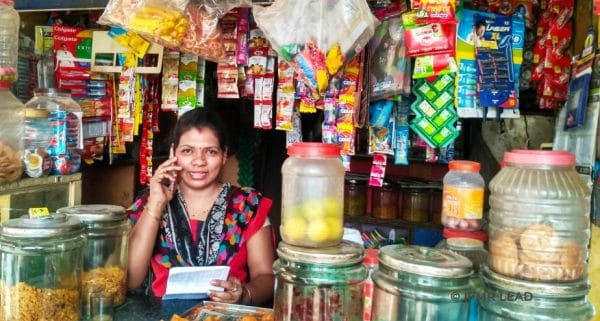At ideas42, we’re honoring International Women’s Day this year by taking a look at women entrepreneurs around the world. Globally, 37% of all enterprises are woman-owned. While there’s still progress to be made in reaching 50%, that’s hundreds of millions of women running businesses—generating incomes for their households and bolstering their local communities.
Despite this pivotal role in the global economy, women often face steep challenges when starting and growing their businesses. They face significantly greater challenges in accessing funds to invest in and grow their businesses than men. The International Finance Corporation estimates that close to 70% of woman-owned small and medium enterprises in developing economies are unserved or underserved by financial institutions, leading to a credit gap of around $300 billion.
And the barriers women face extend beyond the financial. The longstanding norm of the lone male entrepreneur continues to be perpetuated in popular and social media, education programs, and even through policies in many countries. This is perhaps why, regardless of where women live, they’re less likely to see themselves as capable of running an enterprise as men. As the saying goes, you can’t be what you can’t see. This creates a context in which the decision to start a business is heavily weighted against women.
We’re advocates for asking the right questions and immersing ourselves in decision-making contexts in order to fully understand what’s going on for real people in the real world. Indeed, it’s the very core of all of our work. That’s why we believe that, given all the obstacles women entrepreneurs face, behavioral science can be a critical tool for potential or newly minted women entrepreneurs around the world.
In tackling this, we started with the traditional classroom-based training tools commonly given to microentrepreneurs designed to help them build financial acumen and skills to grow their businesses—most of which have not proven effective. Over the past few years, we interviewed hundreds of women to find out what specific challenges they face, working with microfinance institutions that lend specifically to women in the Dominican Republic, India, and the Philippines. The issues reported were similar in all three countries—limited time and the demands of juggling business and household responsibilities made it hard to apply abstract business theory taught in courses to their actual enterprises. (Behavioral research affirms that these circumstances are generalizable across gender). Despite these challenges, the majority of the women we interviewed expressed a strong desire to grow their businesses.
Equipped with this feedback and our expertise in behavioral science, we designed the Financial Heuristics Training. It simplifies abstract financial management concepts into heuristics, or rules of thumb, and prioritizes convenience by delivering lessons in short, engaging phone messages that entrepreneurs can access at any time and any place. The lessons were well received, with 70% listenership rates, and they also helped microentrepreneurs improve their business practices even months after the training. And 93% of the participants were women. Taken to scale, this represents an incredible opportunity to help millions of women strengthen their enterprises and create a better future for themselves and their families.
Of course, there are many hidden (and some not-so-hidden) barriers that women business owners experience, and simplifying useful training and advice is just one way that behavioral science can support and further empower them. By asking the right questions and identifying solutions built using behavioral insights and feedback from real-world women, we can move beyond thinking about financial inclusion to taking action and creating real, measurable impact in the lives of these entrepreneurs. With more and more women around the world starting businesses, our potential to leverage behavioral science to positively impact their financial lives and their futures is stronger than ever.



